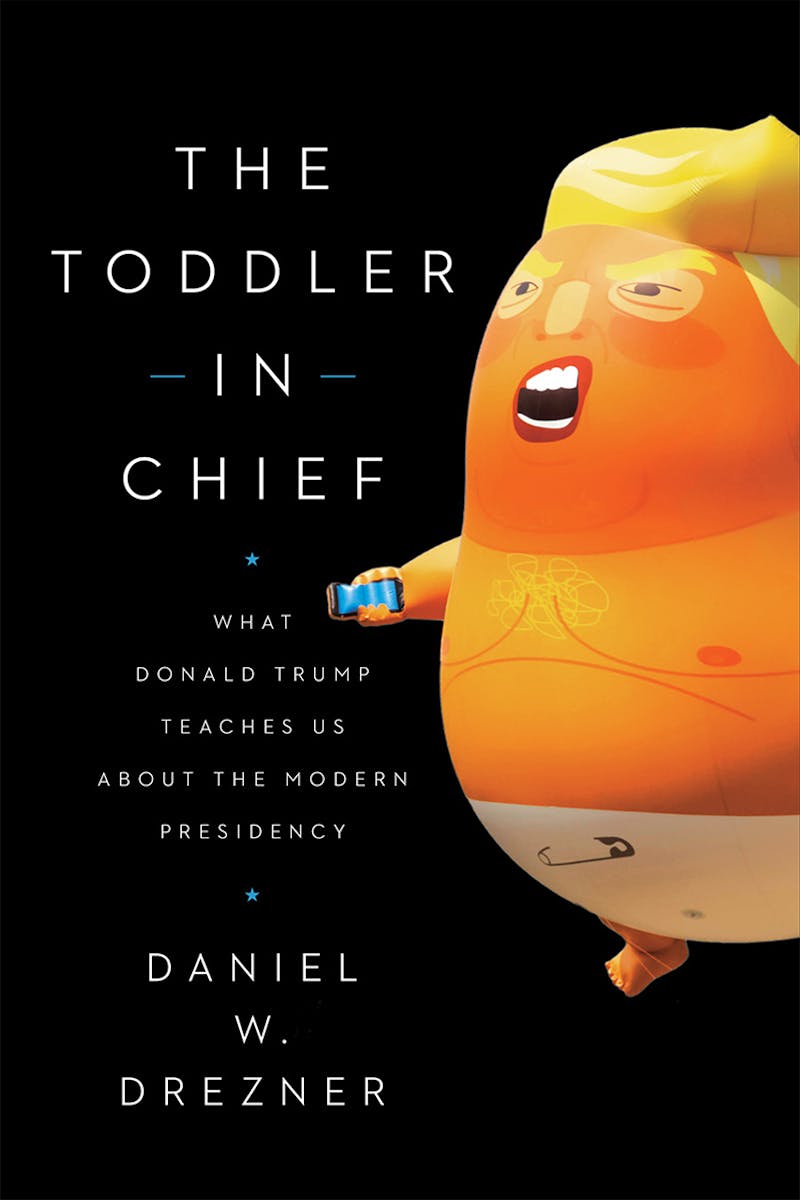On October 7, 2007, I attended a lecture by Seymour Hersh at the University of California, Los Angeles titled “The Road from 9/11 to Abu Ghraib and Beyond.” At the time, Hersh was one of the most prominent critics of the Bush Administration, and I had gone hoping for both insight and a better sense of how to push back against this machine of never-ending war. But Hersh had none of that to offer. He opened his talk with a number: 471.
471, he explained, was the number of days until January 20, 2009, and the end of the Bush Administration. With the midterms behind us, Democrats in Congress could put a brake on many of Bush’s terrible ideas. For the rest of us, there was nothing to do but wait it out. In the meantime, he went on to hint that his sources in the military had promised further chicanery, that Rumsfeld and Cheney had “something big cooking up,” and that we should all stay tuned for more terrible revelations. Hersh’s tendency to tout his well-placed but anonymous and unverifiable sources positioned him as an insider with a front-row seat of history, while at the same time he urged his audience to sit on their hands and watch. Stay tuned, but do nothing.
Now in the twilight of his career, Hersh has started to embrace conspiracy theories and has found his clout faded substantially. But his call for outraged passivity has since gone mainstream, and after November of 2016, it became the dominant mode of a certain kind of liberal approach to Donald Trump. There’s nothing you can do but sit back and wait it out. Stay tuned, but do nothing. This mindset has given rise to a peculiar subgenre of books on the Trump era: More or less disposable, they have come and gone on the New York Times bestseller list, each notching a few weeks before disappearing, resurfacing in a few months on the remainder table. The writing is characterized by a forgettable prose style occasionally punctuated by some kind of lofty, summative statement on history and/or truth or stirring calls to action. But rather than detail what that action might look like, they instead end up encouraging readers to do next to nothing. And as the last six months have finally revealed, the attitude that drove these books has left their audience largely helpless, left to the mercy of fate as history changed all around them.
The writers in this genre come from a narrow variety of walks of life. They include political pundits of both the center-left (David Plouffe, former Obama campaign manager and author of A Citizen’s Guide to Beating Donald Trump) and center-right variety (Rick Wilson, apostate GOP strategist whose Running Against the Devil spent two weeks on the New York Times bestseller list in early 2020). They include disaffected Republicans, former administration officials, such as the anonymous writer of A Warning, and journalists like ABC’s Jonathan Karl (Front Row at the Trump Show) and the Washington Post’s Carol Leonnig and Philip Rucker (A Very Stable Genius: Donald J. Trump’s Testing of America). And then there are the academics and other observers who were catapulted into the spotlight via social media: people like Daniel W. Drezner (The Toddler In Chief).
On their own, any one of these books carries no more weight than a slight breeze. But the aggregate weight of them is staggering. From book to book, a common refrain emerges, a chorus of voices that gradually become a deafening white noise. Their real work, it turned out, was not to stop Trump or Trumpism but to comfort the troubled mind. In them, the reader could find two things: a tone whose purpose was to provide a psychological barrier from the distress caused by this administration and a reassuring paean to normalcy and the durability of institutions.

Drezner’s The Toddler In Chief: What Donald Trump Teaches Us About the Modern Presidency exemplifies the kind of smug, ironic distance that marks many of these books. A Washington Post contributor and professor of international politics at Tufts University, Drezner should have been well placed to write a serious book about the politics of the Trump era (in previous works, he has written about international regulatory regimes, economic sanctions, and the place of think tanks in American politics). Yet his most recent book is built around a single resolutely superficial idea: comparing Donald Trump to a small child. It grew out of a tweet thread that Drezner began on April 25, 2017, with the simple sentence: “I’ll believe that Trump is growing into the presidency when his staff stops talking about him like a toddler,” along with a link to a Washington Post article that included an anonymous quote about Trump’s television habits: “Once he goes upstairs, there’s no managing him.”

Toddler in Chief pursues this comparison with a grandiose sense of superiority. While other theories “can explain portions of Trump’s behavior,” Drezner argues, “they cannot explain all of it as well as the toddler thesis.” Each chapter examines a different infantile character trait: “Temper Tantrums,” “Short Attention Span,” “Impulse Control.” Drezner quotes the American Academy of Pediatrics’s manual Caring for Your Baby and Young Child on each of these phases and follows up by amassing reports of Trump’s behavior that fit the description. Crucially, Drezner argues, it’s not that Trump’s detractors compare him to a toddler; “Trump’s own supporters and subordinates have made this comparison as well.” Whether it’s Newt Gingrich (“There are parts of Trump that are almost impossible to manage”) or Trump’s own Svengali Steve Bannon (“I’m sick of being a wet nurse for a 71-year-old”), the book is a chronicle of the president’s own friends and staff treating him like a fussy two-year-old, presented page after page without a reprieve.
The book’s framing seems designed to combat Trump by merely trying to make him and his supporters feel embarrassed. Yet in some cases, it has the effect of treating some of his most harmful actions without gravity. Drezner describes Trump’s response to the Charlottesville white supremacy rally—when he said that there were “very fine people” on both sides—as an example of “Oppositional Behavior” and not as an outburst of Trump’s very deliberate and obvious racism.
A week after Drezner’s book appeared came Jonathan Karl’s Front Row at the Trump Show. Karl, a White House correspondent for ABC News, has covered Trump since the 1980s and has been a central part of a White House Press Corps that has found itself repeatedly stymied by the unashamed lying and dissimulation of Trump and his administration. “I don’t believe there has ever been a more exhausting, exhilarating, dangerous, maddening, frustrating, downright bizarre, or more important time to be a White House reporter,” Karl writes at the beginning of a book devoted to the importance of objective journalism, even in the face of widespread dissimulation.
Sober instead of smug, Karl still can’t quite get past Trump as an individual. White House correspondents, after all, are used to dealing with spin and lies, and they’re used to being spoonfed garbage. They’re also used to treating death and destruction as abstract concepts (Karl, in particular, had a reputation for pitching softballs to Bush Administration officials). But there’s a specific way of going about this, and the most frustrating thing for Karl about the Trump administration seems to be its steadfast refusal of this genteel approach. After Karl reminds Trump of his promise that he will “never lie” to the media, he describes feeling “taken aback” when Trump confesses to him that, “When I can, I tell the truth.” It’s not the lying; it’s the unwillingness to play the game that the press is used to.
By depicting Trump as a toddler or focusing on his pathological lying, these writers keep us laser focused on Trump himself—as do those that suggest he’s mentally unwell, as Anonymous does in A Warning (“normal people who spend any time with Donald Trump are uncomfortable by what they witness. He stumbles, slurs, gets confused, is easily irritated, and has trouble synthesizing information, not occasionally but with regularity”), a sentiment echoed by the title of A Very Stable Genius. This is Trump as a case history instead of Trump as the expression of a deep rupture in the country. By limiting our opprobrium to Trump himself, we manage to both feel superior to him while also dismissing him. We’re encouraged to “solve” the riddle of Trump; Leonnig and Rucker set out to “make meaning by finding patterns in the seeming chaos.” And once we understand why he behaves the way he does, we are free to write him off and go back to our normal routines.
Karl, like other journalists, positions himself as a sober-minded and fair arbiter of the truth, doing his duty tirelessly and hewing to the notion that facts and objectivity, by themselves, will carry the day. But such lofty ideals are undercut by the book’s promise of delivering more inside gossip and unbelievable spectacle. Among its blurbs is a quote from USA Today’s Washington Bureau chief Susan Page, who argues that Karl’s reporting “pays off in his account of what he calls the Trump Show with some startling scoops. What did the president scrawl across the rejected resignation letter from his attorney general? He tells us.” And then there’s this, from New York magazine’s D.C. correspondent, Olivia Nuzzi: “It was so good I was sad when it ended.” Marketing national crisis as page-turning diversion, Front Row at the Trump Show makes the administration seem slightly less than real, a distant episode that might almost involve some other country.
Encouraging the reader to adopt the position of spectator goes hand in hand with the endorsement of passivity one finds again and again in these books. Very little is asked of the reader in terms of direct action. Drezner’s book ends by reminding us that “Donald Trump is never going to grow up,” and continues, “It will be up to the American people, and not the Toddler in Chief, to set aside childish things. If voters re-elect Trump in 2020, then he is no longer the most immature American. The American electorate would be just as developmentally delayed as the 45th president. The true Toddlers in Chief would be us.”
Voting, for these writers, remains the sole remedy for this nightmare. David Plouffe’s A Citizen’s Guide to Beating Donald Trump focuses entirely on tactics for winning the vote and is explicitly limited in its ability to imagine action beyond the ballot box. “I understand that the battle to extend voting rights freely to all citizens, of all colors, religions, genders, and so forth, has been one of our challenges for centuries,” Plouffe notes before going on to explain: “But I’m also a rigorously pragmatic guy when it comes to winning elections. No whining about the electoral college and no whining about the voter registration laws. Let’s change them when we can, but we have to win in 2020 under the weight of them right now.” Thankfully, groups like the American Civil Liberties Union, waging a full-bore legal assault to preserve our right to vote, have wisely ignored this suggestion—but even beyond that, there are no calls here (in Plouffe’s book, or in any of the others) for civil disobedience, sustained grassroots activism, or any real plan of action beyond “talk to your neighbors about why Trump must be stopped.” When you’ve singled out and elevated Trump as a unique aberration, nothing else matters.
Unable even to muster this milquetoast call to action, Karl’s book ends by suggesting that if we just do nothing, the bad dream will go away on its own: “Presidents will come and go, and so will the individual journalists and news organizations who report on them. But the desire to be informed and to seek out truth is as fundamentally American as anything written in those founding documents; it has and will continue to survive challenging times and flawed reporters just as surely as it will survive flawed presidents.”
Stay tuned, but do nothing.
This belief that election cycles are the only timelines that matter and that America’s democratic institutions are somehow self-sustaining is how much of America found itself defenseless as the Covid-19 outbreak raged through the country. When Karl’s book finally arrived in what was left of bookstores at the end of March, it was already clear that real, actual Americans were not surviving this flawed president, to say nothing of the country’s ideals. Used to passivity, encouraged to treat everything as a show, centrist liberals watched in horror as they realized that it was now too late to stop an administration displaying apathy and open hostility toward its own citizens’ lives. The right, at least, could console itself in conspiracy theories; liberals had nothing but hopeless terror.
For the most part, white middle-class liberals did not bear the brunt of the virus. It has disproportionately harmed Black, Indigenous, and people of color communities—Americans for whom the “show” had always been immediately real. And rather than watch in stunned silence, those communities have had no choice but to spring into action. GoFundMe’s were flooded, mutual aid networks went into overtime, and resources were pooled and shared. Those who could never afford to sit on their hands were once again reminded that they were on their own.
Meanwhile, those who had the luxury of complacency for most of their lives have lately turned to important, necessary books that have been in print for years but which are now back-ordered as liberals race to get caught up, eager to cram for the midterm, including Ibram X. Kendi’s Stamped from the Beginning, Ta-Nehisi Coates’s Between the World and Me, and Layla F. Saad’s Me and White Supremacy. And so, at least for the moment, there has been some respite on the bestseller lists from the usual insider politics hackwork. Books like Kendi’s How To Be An Anti-Racist, Michelle Alexander’s The New Jim Crow, and Ijeoma Oluo’s So You Want to Talk About Race demand accountability and action, reject passivity out of hand, and stress voting only as part of a larger coordinated project of civil action and civil disobedience. Most importantly, to the extent they mention Trump at all it is to treat Trumpism not as a unique interruption of American democracy but as the culmination of the racist and destructive tendencies of American capitalism.
These are not always comfortable truths, and the recent success of John Bolton’s The Room Where It Happened and Mary L. Trump’s Too Much and Never Enough suggests how much easier it for some to just take a front-row seat at the toddler-in-chief show. But the hour is very, very late: There’s far too much work to be done and no excuse for anyone to sit in the audience counting the days.
